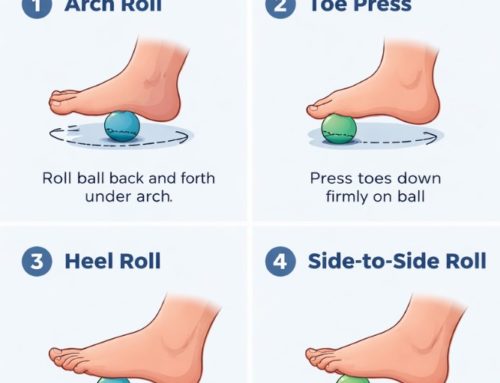Why Your Mood Matters For a Brain-Healthy Lifestyle
Your mind and mood are powerful partners in creating a brain-healthy lifestyle. A simple smile does far more than express happiness – it sparks chemical reactions that sharpen your focus, boost memory, and protect your brain from stress. Though regular physical activity remains one of the strongest tools for brain health, your mood plays an equally significant role. While we can’t always avoid life’s challenges, understanding how emotions affect brain function gives us a reason to nurture positivity through laughter, connection, and joy.
Smiling is a natural response to positive or humorous interactions. But did you know that it’s also part of a brain-healthy lifestyle? According to experts, smiling improves cognition, lowers stress, and enhances social connections. In fact, the happier you are, the sharper your overall brain functions become.

Unfortunately, we don’t always have reasons to smile, due to financial issues, or medical concerns. In these situations, therapeutic recreational activities may be recommended to improve your situation and boost mental health. These include concerts, meals, classes, games, holiday celebrations, or shopping trips, allowing you to choose activities matching your interests. Knowing the link between mind and mood may motivate you to find more reasons to smile, so keep reading.
Brain-Healthy Lifestyle: Connection Between Mind and Mood
Evidence shows that an optimistic outlook, including smiling, reduces the risk of cancer and infection, increasing your lifespan. However, it isn’t only your physical body that benefits. Positive emotions also improve how your mind functions, boosting cognition while reducing stress, depression, and other negative conditions. Let’s take a look at how smiling alters your brain.
The science of a smile
When we experience happiness or amusement, the brain releases endorphins, including dopamine and serotonin. These hormones stimulate the facial muscles into producing a smile. The smile increases our positivity, stimulating the brain’s reward system and producing more positive hormones.
Those neurotransmitters do more than make you feel good. They also promote a brain-healthy lifestyle by improving cognition. Recent studies show that genuine smiles from positive emotions improve processing efficiency, focus, and memory.
Experts also state that smiling and happiness increase productivity, learning, creativity, and efficiency. These traits are vital for those still in the workforce. However, they’re also beneficial for maintaining your home and enjoying your favorite hobbies.
Stress: the silent killer
According to recent evidence, stress damages brain cells, with chronic conditions decreasing the volume of the hippocampus. Such a reduction affects learning, memory, and other cognitive functions.
Due to such damage, eliminating stress whenever possible promotes a brain-healthy lifestyle. Studies show that smiling and laughter improve quality of life by reducing stress. Genuine laughter decreases cortisol, epinephrine, and other stress hormones. It also promotes dopamine and serotonin production to keep those negative thoughts at bay.
Stress also affects the physical body by decreasing immune function and increasing pain. Those smile-induced happy hormones combat these issues by boosting your immune system and acting as a natural painkiller. When your body is healthy, so is your mind.
Stay social
Another brain-healthy lifestyle benefit of smiling is its effect on your social life. Studies show that happy faces motivate others to interact with you, improving your social relationships.
Those social bonds improve your overall well-being by reducing anxiety and depression. Stable emotional bonds offer the support needed to cope with negative events. They also help you make healthy choices and increase positivity.
Cognitive decline is also 91% lower in those with high levels of social engagement. Social activities, including exercise, events, or game nights, stimulate the brain. The happier you are, the more likely you are to seek out such interactions and have others reciprocate your interest.
While smiling, laughter, and positive emotions strengthen the brain, they are just one piece of the puzzle. Regular physical activity, restorative sleep, and a balanced diet also protect brain cells, boost mood, and support overall brain health. Together, these habits create a truly brain-healthy lifestyle.
Resources:
- Walden University, The Power of Smiling
https://www.waldenu.edu/online-bachelors-programs/bs-in-psychology/resource/the-power-of-smiling - British Council, April 2, 2014, What’s the science behind a smile?
https://www.britishcouncil.org/voices-magazine/famelab-whats-science-behind-smile - PMC, Dec. 26, 2012, Smile to see the forest: Facially expressed positive emotions broaden cognition
https://pmc.ncbi.nlm.nih.gov/articles/PMC3530173/ - Intermountain Health, June 3, 2019, The Real Health Benefits of Smiling and Laughing
https://intermountainhealthcare.org/blogs/the-real-health-benefits-of-smiling-and-laughing - PubMed, April 1, 1999, Does stress damage the brain?
https://pubmed.ncbi.nlm.nih.gov/10202566/ - PubMed, July 2016, Therapeutic Benefits of Laughter in Mental Health: A Theoretical Review
https://pubmed.ncbi.nlm.nih.gov/27439375/ - Mayo Clinic, Stress relief from laughter? It’s no joke
https://www.mayoclinic.org/healthy-lifestyle/stress-management/in-depth/stress-relief/art-20044456 - PMC, Jan. 7, 2019, The Motivational Power of the Happy Face
https://pmc.ncbi.nlm.nih.gov/articles/PMC6356968/ - CDC, May 15, 2024, Social Connection
https://www.cdc.gov/social-connectedness/about/index.html#:~:text=Social%20connection%20can%20lead%20to,stress%2C%20anxiety%2C%20and%20depression - PMC, June 30, 2020, Pathways From Social Activities to Cognitive Functioning: The role of Physical Activity and Mental Health
https://pmc.ncbi.nlm.nih.gov/articles/PMC7325149/
This article contains informational and educational materials and does not replace health or medical advice. For questions or concerns regarding your medical condition or health objectives, speak to a qualified physician or healthcare provider.






Leave A Comment